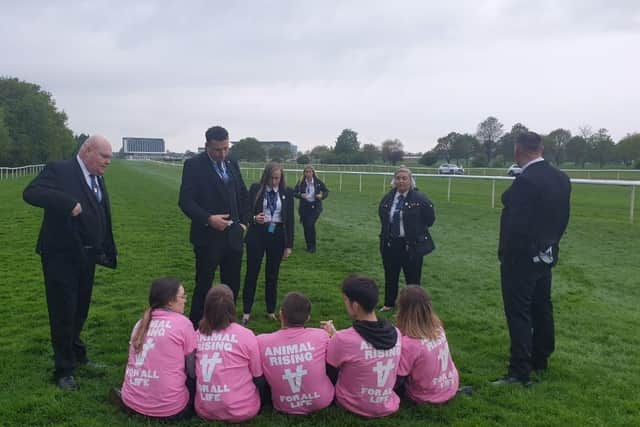Readers' letters: The real horror of horse racing and plea to not waste GP's time
and live on Freeview channel 276
Many of us, like myself, who were brought up around horse racing, may still consider it a benign ‘sport’. My father, an avid punter, used to say that the horses were ‘treated like kings’, and it was not until I learned more about the industry and its treatment of animals many years later, that I began to understand that, as incredibly sociable herd-living mammals (much like our good selves), they might actually be a lot happier being treated like horses.
As social animals, horses do not fare well in the kind of isolation in which racehorses are kept. During training they can find themselves stabled in a room the size of your bedroom (imagine a horse in your bedroom!) for up to 22 hours a day. In the wild they would spend this time constantly moving, grazing and socialising, which is why they develop recogniseable psychological problems when held in solitary confinement. The way racehorses are bred also leads to a number of physiological problems such as respiratory conditions and enlarged hearts. These are in addition to the routine physical problems caused by racing and training, which include fractures, musculoskeletal injuries, knee injuries, ligament injuries and foot damage.
Advertisement
Hide AdAdvertisement
Hide AdBut the real horror of racing is the on-track mortality rate, especially with National Hunt racing over jumps. Three horses have died in National Hunt races at Doncaster this year alone, and we’re only in May. Over sixty horses have died at Doncaster Racecourse since Animal Aid launched their Horse Death Watch website in 2007 (horsedeathwatch.com), the majority during National Hunt events. Collectively there have been 2606 deaths in the UK out of the last 5901 races. Averaging to a 44% chance of a horse death per horse race. National Hunt is by far the most dangerous, but these deaths take place during flat racing too. There have been 13 deaths during flat racing at Doncaster in the last decade alone.


The industry knows it has a problem and, as such, there is a near constant stream of welfare improvements. This year, new and much-welcomed new whip rules were introduced to protect horses, but they also show the illogical way welfare issues are addressed. Everyone agrees that whips are cruel, but the answer of the welfare model is to slowly introduce a progression of guidelines to limit use. The horses must be over the moon that they can ‘only’ be whipped seven times in each flat race from a backhanded position. Anyone with an ounce of logic would see that the real answer is to ban whips.
There are a lot of myths about Doncaster Races and its relationship to our city. It is claimed it brings in huge revenue, but the way the city is built (and with our poor public transport infrastructure) the vast majority of businesses in the city centre — not to mention our too often overlooked satellite towns — actually lose money during events like the St Leger. Even at these events, many racegoers do not even take notice of the horses themselves. Instead, they love socialising (just like horses do), dressing-up, music, dancing, booze and gambling; none of which requires animal cruelty… they’d get the same result — and you’d have a much more unique offer — if they built the world’s largest Scalextrics circuit around the course!
Doncaster Races could be a fantastic and highly profitable venue without the needless death of a single horse. But until that day comes, I will always be thankful for the bravery of individuals and groups like Animal Rising who risk their own freedom to save the lives of others.
Warren Draper
Comment Guidelines
National World encourages reader discussion on our stories. User feedback, insights and back-and-forth exchanges add a rich layer of context to reporting. Please review our Community Guidelines before commenting.